Filter by
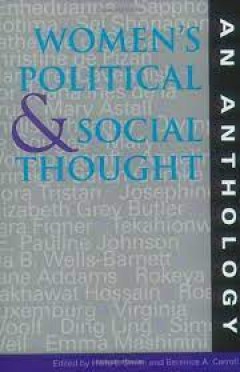
Women's Political and Social Thought An Anthology
Women's Political and Social Thought: An Anthology is the first collection of source readings of women's important writings in political and social theory from ancient times to the twentieth century. It fills a major gap in materials available for teaching the history of political thought and opens paths for exploring the rich and diverse contributions of women as creators of theory. Not confin…
- Edition
- -
- ISBN/ISSN
- 9780253069023
- Collation
- -
- Series Title
- -
- Call Number
- -
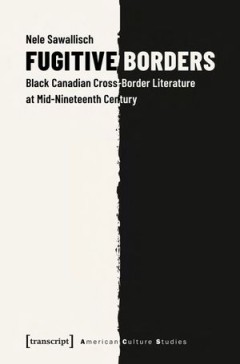
Fugitive Borders Black Canadian Cross-Border Literature at Mid-Nineteenth Ce…
Fugitive Borders explores a new archive of 19th-century autobiographical writing by black authors in North America. For that purpose, Nele Sawallisch examines four different texts written by formerly enslaved men in the 1850s that emerged in or around the historical region of Canada West (now known as Ontario) and that defy the genre conventions of the classic slave narrative. Instead, these te…
- Edition
- -
- ISBN/ISSN
- 9783839445020
- Collation
- -
- Series Title
- American Culture Studies
- Call Number
- -
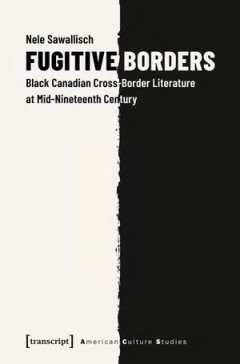
Fugitive Borders : Black Canadian Cross-Border Literature at Mid-Nineteenth C…
Fugitive Borders explores a new archive of 19th-century autobiographical writing by black authors in North America. For that purpose, Nele Sawallisch examines four different texts written by formerly enslaved men in the 1850s that emerged in or around the historical region of Canada West (now known as Ontario) and that defy the genre conventions of the classic slave narrative. Instead, these te…
- Edition
- -
- ISBN/ISSN
- 9783839445020
- Collation
- -
- Series Title
- -
- Call Number
- 800 SAW f
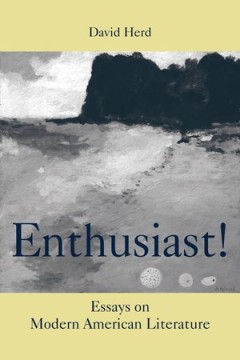
Enthusiast! : Essays on Modern American Literature
This book takes enthusiasm to be a defining feature of American literature, showing how successive major writers – Melville, Thoreau, Pound, Moore, Frank O’Hara and James Schuyler – have modernized and re-modeled Emerson’s founding sense of enthusiasm. The book presents the writer as enthusiast, showing how enthusiasm is fundamental to the composition and the circula…
- Edition
- -
- ISBN/ISSN
- 9780719074288
- Collation
- -
- Series Title
- -
- Call Number
- 800 HER e

A Grand Army of Black Men Letters from African-American Soldiers in the Unio…
The Civil War stands vivid in the collective memory of the American public. There has always been a profound interest in the subject, and specifically the participation of black Americans in and reactions to the war and the war's outcome. Almost 200,000 African-American soldiers fought for the Union in the Civil War. Although most were illiterate ex-slaves, several thousand were well-educated, …
- Edition
- -
- ISBN/ISSN
- 9780511663574
- Collation
- -
- Series Title
- Cambridge Studies in American Literature and Culture (63)
- Call Number
- -
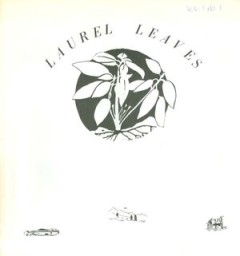
Laurel Leaves
aurel Leaves was a periodical published semi-annually from 1973-1975, no publication in 1976, and annually from 1977-1979 by the Appalachian Consortium. The 1979 issue is not included in this digital version. The newsletter typically focused on the arts, including music, literary, and art works; and on social conditions of the Southern Appalachian region. However, this collections also includes…
- Edition
- Vol. 1
- ISBN/ISSN
- -
- Collation
- -
- Series Title
- -
- Call Number
- 498
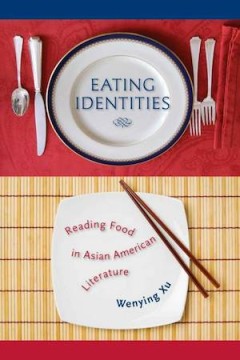
Eating Identities : Reading Food in Asian American Literature
Eating Identities' is the first book to link food to a wide range of Asian American concerns such as race and sexuality. Xu provides lucid and informed interpretations of seven Asian American writers (John Okada, Joy Kogawa, Frank Chin, Li-Young Lee, David Wong Louie, Mei Ng, and Monique Truong), revealing how cooking, eating, and food fashion Asian American identities in terms of race/ethnicit…
- Edition
- -
- ISBN/ISSN
- 9780824831950
- Collation
- -
- Series Title
- -
- Call Number
- 800 XUW e
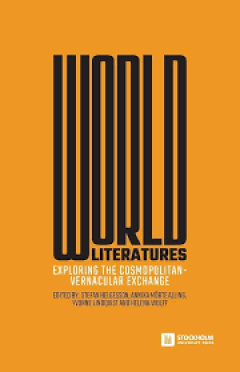
World Literatures Exploring the Cosmopolitan-Vernacular Exchange
"Placing itself within the burgeoning field of world literary studies, the organising principle of this book is that of an open-ended dynamic, namely the cosmopolitan-vernacular exchange. As an adaptable comparative fulcrum for literary studies, the notion of the cosmopolitan-vernacular exchange accommodates also highly localised literatures. In this way, it redresses what has repeatedly been i…
- Edition
- -
- ISBN/ISSN
- 9789176350782
- Collation
- -
- Series Title
- -
- Call Number
- -
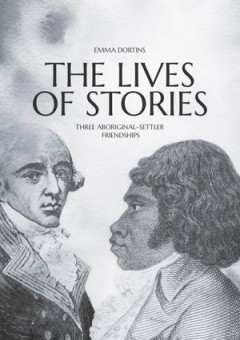
The Lives of Stories: Three Aboriginal-Settler Friendships
The Lives of Stories traces three stories of Aboriginal–settler friendships that intersect with the ways in which Australians remember founding national stories, build narratives for cultural revival, and work on reconciliation and self-determination. These three stories, which are still being told with creativity and commitment by storytellers today, are the story of James Morrill’s adopti…
- Edition
- -
- ISBN/ISSN
- 9781760462406
- Collation
- -
- Series Title
- -
- Call Number
- 994 DOR l
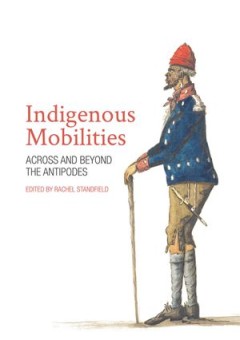
Indigenous Mobilities: Across and Beyond the Antipodes
This edited collection focuses on Aboriginal and Māori travel in colonial contexts. Authors in this collection examine the ways that Indigenous people moved and their motivations for doing so. Chapters consider the cultural aspects of travel for Indigenous communities on both sides of the Tasman. Contributors examine Indigenous purposes for mobility, including for community and individual econ…
- Edition
- -
- ISBN/ISSN
- 9781760462147
- Collation
- -
- Series Title
- -
- Call Number
- 911 IND i
 Computer Science, Information & General Works
Computer Science, Information & General Works  Philosophy & Psychology
Philosophy & Psychology  Religion
Religion  Social Sciences
Social Sciences  Language
Language  Pure Science
Pure Science  Applied Sciences
Applied Sciences  Art & Recreation
Art & Recreation  Literature
Literature  History & Geography
History & Geography